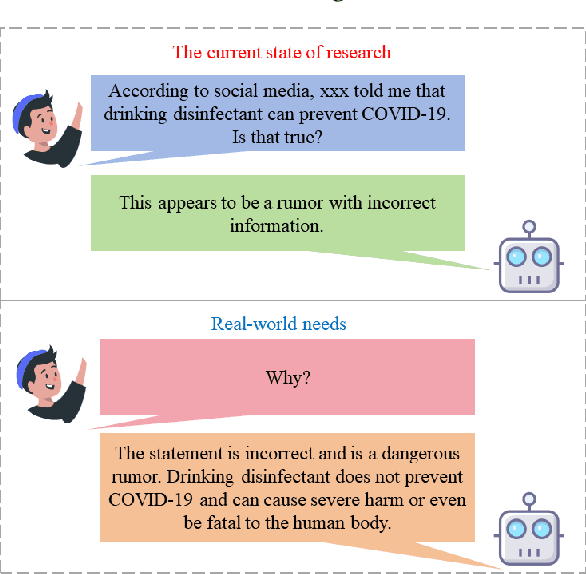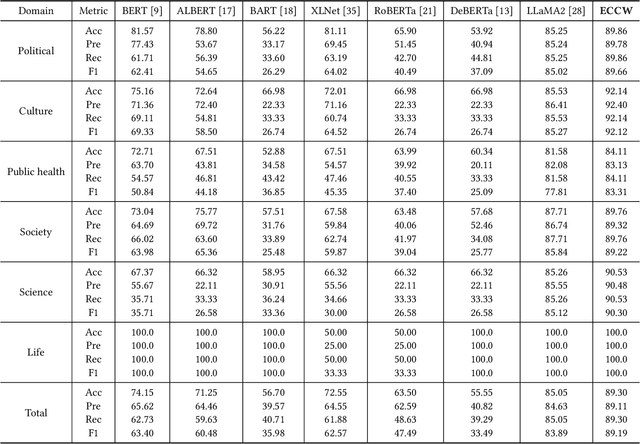Zening Liu
The Future of Combating Rumors? Retrieval, Discrimination, and Generation
Mar 29, 2024



Abstract:Artificial Intelligence Generated Content (AIGC) technology development has facilitated the creation of rumors with misinformation, impacting societal, economic, and political ecosystems, challenging democracy. Current rumor detection efforts fall short by merely labeling potentially misinformation (classification task), inadequately addressing the issue, and it is unrealistic to have authoritative institutions debunk every piece of information on social media. Our proposed comprehensive debunking process not only detects rumors but also provides explanatory generated content to refute the authenticity of the information. The Expert-Citizen Collective Wisdom (ECCW) module we designed aensures high-precision assessment of the credibility of information and the retrieval module is responsible for retrieving relevant knowledge from a Real-time updated debunking database based on information keywords. By using prompt engineering techniques, we feed results and knowledge into a LLM (Large Language Model), achieving satisfactory discrimination and explanatory effects while eliminating the need for fine-tuning, saving computational costs, and contributing to debunking efforts.
Dynamic Domain Discrepancy Adjustment for Active Multi-Domain Adaptation
Jul 26, 2023Abstract:Multi-source unsupervised domain adaptation (MUDA) aims to transfer knowledge from related source domains to an unlabeled target domain. While recent MUDA methods have shown promising results, most focus on aligning the overall feature distributions across source domains, which can lead to negative effects due to redundant features within each domain. Moreover, there is a significant performance gap between MUDA and supervised methods. To address these challenges, we propose a novel approach called Dynamic Domain Discrepancy Adjustment for Active Multi-Domain Adaptation (D3AAMDA). Firstly, we establish a multi-source dynamic modulation mechanism during the training process based on the degree of distribution differences between source and target domains. This mechanism controls the alignment level of features between each source domain and the target domain, effectively leveraging the local advantageous feature information within the source domains. Additionally, we propose a Multi-source Active Boundary Sample Selection (MABS) strategy, which utilizes a guided dynamic boundary loss to design an efficient query function for selecting important samples. This strategy achieves improved generalization to the target domain with minimal sampling costs. We extensively evaluate our proposed method on commonly used domain adaptation datasets, comparing it against existing UDA and ADA methods. The experimental results unequivocally demonstrate the superiority of our approach.
 Add to Chrome
Add to Chrome Add to Firefox
Add to Firefox Add to Edge
Add to Edge